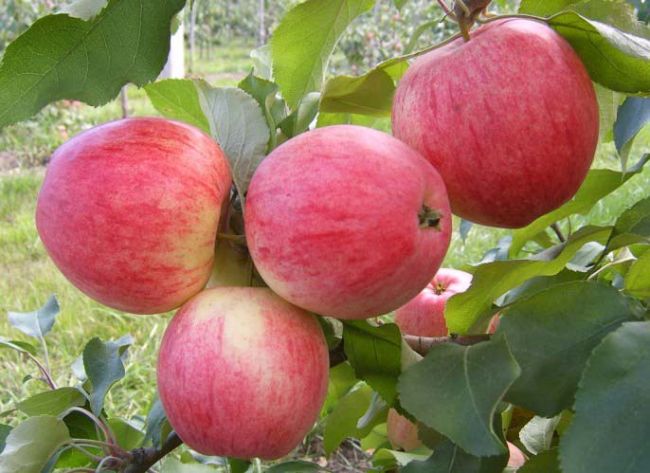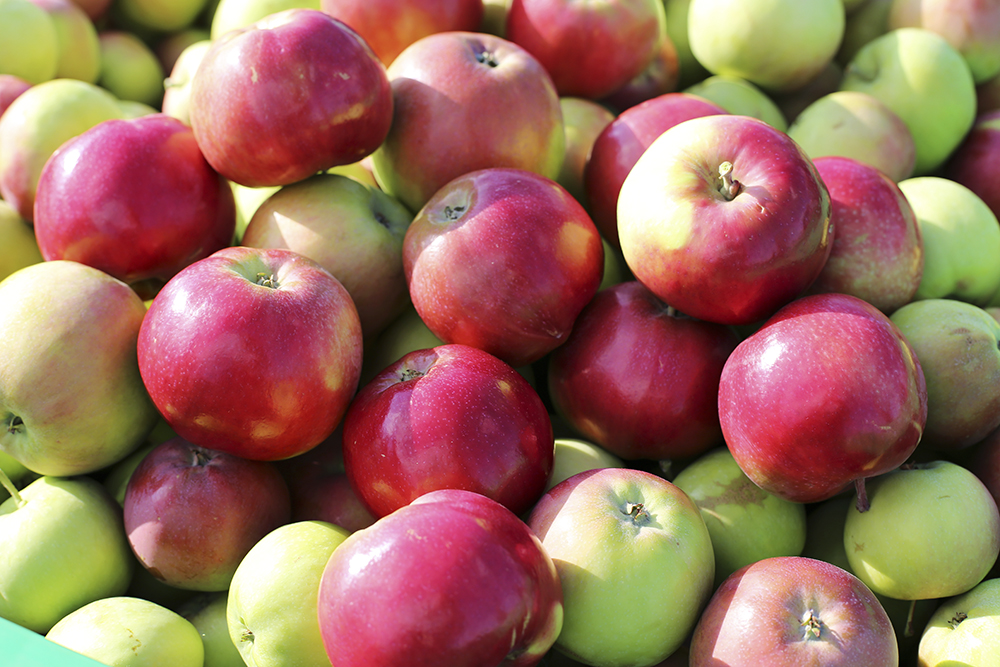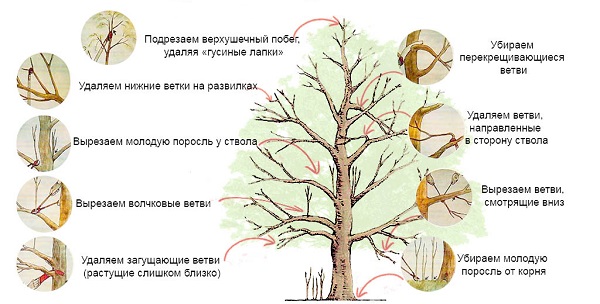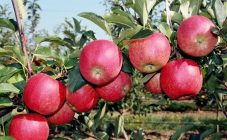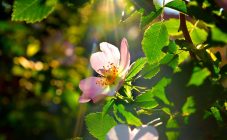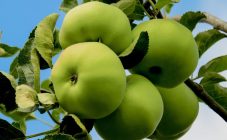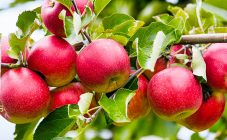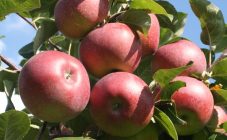Content:
The Geneva apple variety is quite popular with summer residents and gardeners. These summer apples ripen before Papirovka, known for its early maturity. They have excellent palatability combined with excellent appearance. The apple is juicy, with a red blush.
This apple variety is the result of a selection of American gardeners who crossed the famous Quinti and Julired varieties in the 60s. As a result, a new species appeared, characterized by increased winter hardiness, as well as the ability to withstand diseases common among apple trees.
Apple tree Geneva: variety description and characteristics
Before describing the characteristics of the variety, it is worth noting its features, which require a careful approach to agricultural technology:
- despite the fact that the species is classified as winter-hardy, the tree is afraid of spring frosts. Therefore, planting is usually done in late spring;
- the variety is early ripening, and therefore at the time of filling it is extremely responsive to watering and good nutritious soil. The Geneva apple tree feels great on black soil, but is not capricious to loam and sandy loam soil;
- needs aeration;
- uneven ripening allows cleaning in 2-3 steps.
The flowering of this variety is remarkable. The tree is covered with lots of pinkish-white flowers that literally exude a strong and delicate scent.
Even in comparison with the well-known White filling, Early wins in terms of the start of fruiting. Apples ripen almost a week earlier, in July.
The Geneva apple tree is tall: it reaches an average of 5 m in height, with a wide, medium thickened crown, large green leaves. Apples grow even, as if calibrated in size, have a slight flattening, can be yellow-green in color, but during ripening they become an attractive pink-red color.
The taste is sweet and sour. The apples are fragrant, the pulp of medium density is slightly creamy. An adult tree can yield up to 130 kg. The beginning of the first fruiting is early, but the main harvest time is mid-August.
Harvested fruits are popular fresh, but they are also good for processing. Thus, the high content of pectin makes this variety indispensable for making delicious apple marmalade, jelly, and mousses. A good variety for making jams, summer compotes, jelly, making refreshing cider and aromatic wine. When stored in the refrigerator, fresh apples can last for several weeks.
Another distinctive feature is the rapid entry into the fruiting phase. A year after planting the cuttings, you can get the first apples.
As for the treatment against pests and diseases, there is a weak point - the incidence of scab. Therefore, fungicide treatment is required.
Features of agricultural technology
Since the crown of this tree is spreading, it is not recommended to plant the apple tree close to other trees. As mentioned above, the soil must be fertile, and if it is acidic, then before planting the seedling, you need to treat the pit with dolomite flour (1 sq. M. 200 g each) and ash.Reproduction is carried out, as in other varieties, by grafting on the stock, but most often summer residents buy ready-made seedlings from the nursery.
The agricultural technology of this variety comes down to timely feeding, to which this variety responds very well, and correct pruning. In the spring you need to add humus, you can have a little mineral fertilizers, urea. This is done twice - first at the time of bud break, and then at bloom. The third, very important feeding, should be done at the time of pouring the fruit. Summer feeding should provide the tree with nitrogen and potassium. In this sense, a mixture of chicken manure with infusion of green grass would be an excellent top dressing. And when the apple tree bears fruit, in the fall it can be supported with ready-made potash fertilizer.
Advantages and disadvantages of the variety
Like all other apple varieties, Geneva has its advantages. The positive characteristics include the fact that the taste of apples is pleasant sweet and sour, the look is very advantageous, attractive. Fruits are fragrant, rather dense with fine-grained pulp. Plus we add here excellent yield and very early ripening. But, like other summer varieties, it cannot lie for a long time. Shelf life is a couple of weeks. At the same time, apples are difficult to transport without deteriorating presentation. This is the main disadvantage.
The Geneva variety is a fairly popular and revered species among gardeners. It is no coincidence that it is referred to as "folk", common in private gardening. With proper care, the apple tree can bear fruit for a long time and produce attractive, juicy and sweet summer fruits.
